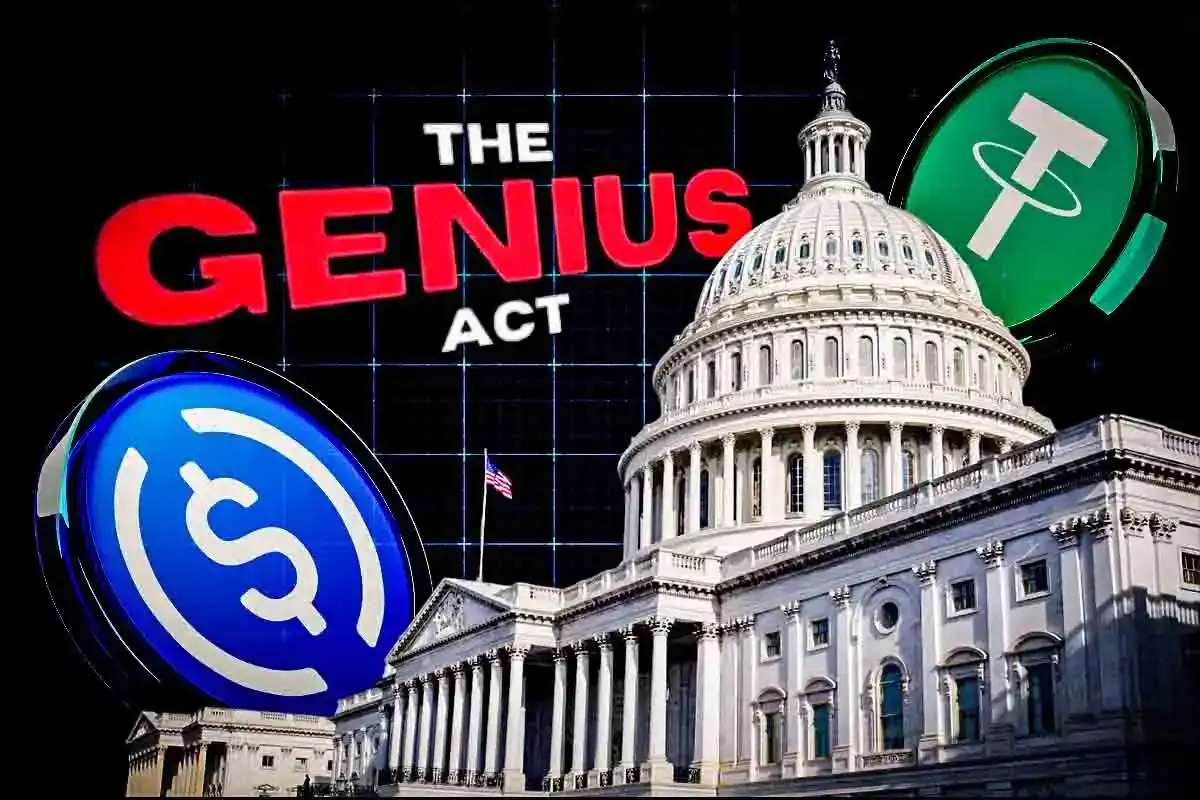Senate Passes GENIUS Act to Regulate Crypto Stablecoins

The U.S. Senate voted 68-30 on Tuesday, June 17, 2025, to pass the Guiding and Establishing National Innovation for U.S. Stablecoins (GENIUS) Act, marking the first significant cryptocurrency legislation to clear the chamber. The bill, sponsored by Republican Senator Bill Hagerty, aims to create a robust regulatory framework for stablecoins, positioning the United States as a global leader in digital assets. With bipartisan support, the legislation now shifts to the House of Representatives, where lawmakers will determine the next steps in shaping the nation’s crypto policy.
The GENIUS Act’s passage follows weeks of intense committee votes, negotiations, and procedural hurdles, including a failed vote last month when Democrats initially withheld support. The bill’s advancement gained momentum after a strong Senate vote last week signaled widespread backing. Senator Hagerty praised the bipartisan effort, stating that the legislation will strengthen U.S. dollar dominance, protect consumers, and boost demand for U.S. Treasurys. The vote reflects a growing recognition of stablecoins’ potential, with U.S. Treasury Secretary Scott Bessent noting that the market could reach $3.7 trillion by the end of the decade.
Stay In The Loop and Never Miss Important Crypto News
Sign up and be the first to know when we publishKey Provisions and Broader Impact
The GENIUS Act establishes clear guidelines for stablecoin issuers, requiring that stablecoins be fully backed by U.S. dollars or highly liquid assets to ensure stability and consumer trust. Issuers with a market size exceeding $50 billion must undergo annual audits to maintain transparency and accountability. The legislation also sets standards for foreign issuance, addressing global competition in the rapidly evolving digital asset space. These measures aim to foster innovation while safeguarding financial stability, a balance that has been a focal point in Senate debates.
The bill’s passage comes amid a pro-crypto shift under President Donald Trump’s administration, which has prioritized creating a legal framework to support cryptocurrency growth in the U.S. This marks a significant departure from previous years, when regulatory uncertainty hindered the industry. Coinbase Chief Legal Officer Paul Grewal highlighted the milestone, noting that such progress seemed unlikely just a year ago. The Senate’s action signals to global markets that the U.S. is serious about embracing digital assets while maintaining oversight.
For consumers, the GENIUS Act offers protections by ensuring stablecoins are backed by reliable assets, reducing the risk of collapses seen in past crypto failures, for example with exchanges like FTX. Businesses stand to benefit from a clearer regulatory environment, which could attract investment and spur innovation in blockchain technology. The legislation also reinforces the U.S. dollar’s role in global finance, as stablecoins tied to the dollar could drive demand for Treasurys, according to Hagerty. This strategic advantage underscores the bill’s broader economic significance.
The House now faces pressure to act swiftly, as the crypto industry and global markets await further clarity on U.S. policy. Lawmakers in the House will need to reconcile the Senate’s framework with their own priorities, potentially shaping amendments or companion legislation. The bipartisan momentum in the Senate suggests a window of opportunity for comprehensive crypto regulation, but political dynamics in the House could influence the timeline and scope of final passage. Industry leaders are optimistic, viewing the Senate’s vote as a catalyst for broader adoption of digital assets.
As stablecoins continue to gain traction in payments and cross-border transactions, the GENIUS Act positions the U.S. to lead in this transformative sector. The legislation reflects a careful balance between fostering innovation and protecting consumers, a model that could influence global standards.
More Bitcoin and Crypto News:
- Bitcoin Cash Leads Layer 1 Cryptocurrencies With Strong Gains In 2025
- Massive Solana Token Unlock Could Trigger Market Volatility As FTX Begins Repayments
- Binance Co Founder Cz Denies Pardon Rumors Amid Social Media Speculation
- Bitcoin Surpasses 100K Again As Trade Talks Fuel Market Optimism
- Arizona Passes Digital Asset Law With New Bitcoin Reserve Fund

